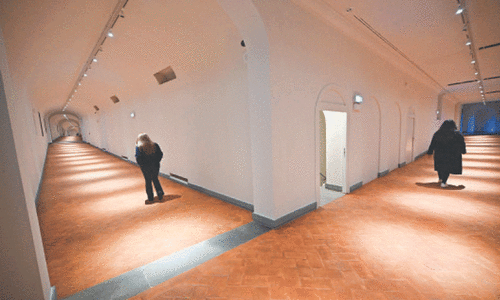PARIS / CAIRO: While the assassination of Ismail Haniyeh strips Hamas of one of its sharpest political minds, it is unlikely to have any bearing on the leadership of the organisation’s military wing, which Israel is trying to destroy in Gaza.
In addition, analysts say the killing in Tehran exposes the depth of Israeli penetration inside the Islamic republic.
For Hamas leaders based outside the Palestinian territories, the assassination in Tehran indicates heightened risks. Haniyeh was the second Hamas leader killed in a Middle East capital this year, following a drone strike that took out the group’s deputy leader — Saleh al-Arouri — in Beirut in January.
Israel has achieved mixed results in trying to kill the Gaza-based commanders; in March, it said it had killed Marwan Issa, the deputy military commander of the Al Qassam Brigades.
Haniyeh’s assassination, coming mere hours after his meeting with Ayatollah Khamenei, is being seen as a major failure
In July, an Israeli attempt in Gaza to kill Mohammed Deif — head of the Al Qassam Brigades — resulte in scores of Palestinian dead but no confirmation he was among them. “Assassinations don’t impact Hamas,” a source close to the Islamist militant group told Reuters from Gaza, declining to be identified due to the sensitivity of the subject.
“Fighters on the ground have their own orders, they are bound to fight until [Yahya] Sinwar and the leadership tell them there is a deal in place,” the source said. Sami Abu Zuhri, a senior Hamas official located outside the Palestinian territories, said Israel assassinated Haniyeh because they had failed to defeat the Iran-backed group in Gaza, calling it an attempt to portray “a fake victory”.
He noted Hamas had weathered numerous assassinations over the years, including Sheikh Ahmed Yassin — Hamas co-founder and spiritual leader — who was killed in a helicopter missile strike in 2004 as he left a mosque in Gaza City.
“Hamas is a movement of institutions, it doesn’t die when its leaders die,” Abu Zuhri told Reuters.
Israeli penetration into Iran
Analysts see the strike as a major intelligence failure by the Iranian services and a deeply disturbing development for the Iranian leadership, especially at a time when security would have been heightened due to the influx of guests for the presidential inauguration.
Hours before he was killed, Haniyeh had held a face-to-face meeting with Iran’s supreme leader Ayatollah Ali Khamenei.
“That the Iranians were not able to stop this assassination is very embarrassing for Iran,” said Agnes Levallois,
deputy president of the Paris-based Institute of Research and Studies for the Mediterranean and Middle East (IREMMO).
But the killing of Haniyeh is just the latest in a line of attacks believed to have been carried out by Israel inside Iran.
Israel is long believed to have carried out sabotage operations through its Mossad espionage agency inside Iran, which refuses to recognise Israel, raising questions over how it appears able to obtain such detailed intelligence.
“This is a confirmation of something we have all long known: The deep extent of penetration of Iranian security services by Israel,” said Arash Azizi, senior lecturer at Clemson University in the United States.
“We know the Israelis have spies and therefore intelligence in Iran,” said Levallois.
“This assassination shows the entire Israeli intelligence system is very well developed to have all the information, and therefore allow the launching of this type of operation,” she said.
“This assassination shows the entire Israeli intelligence system is very well developed to have all the information, and therefore allow the launching of this type of operation,” she said.
According to some outlets, including television channel Iran International, Israeli agents have even captured and interrogated Revolutionary Guards inside Iran to obtain intelligence.
There have also been suspicions, after mysterious explosions around sensitive sites, that Israel has already carried out drone attacks inside Iran, but this has never been confirmed.
“This operation shows that Iran was unable to secure the guests of the Supreme Leader and the president,”
said Hasni Abidi, director of the Geneva-based Centre of Studies and Research on the Arab World and Mediterranean.
Published in Dawn, August 1st, 2024














































Dear visitor, the comments section is undergoing an overhaul and will return soon.